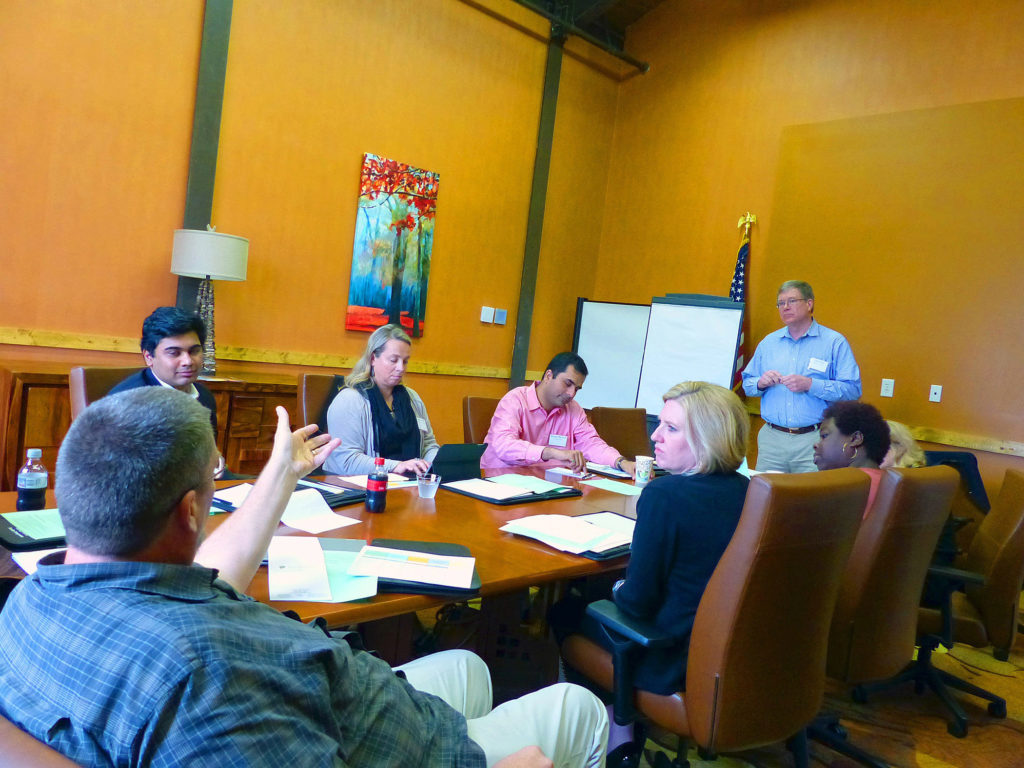Approximately 60 faculty members and administrators gathered in early April to discuss integrative teaching and learning at the UGA Teaching Academy’s 26th annual Academic Affairs Faculty Symposium.
Established as an institutional “think tank,” the annual event is designed to promote change and innovation at UGA. This year’s symposium focused on strategies and programs that promote integrative learning and knowledge. Participants focused on learning activities that broaden the student’s academic experience and explored how the university might ensure that students can synthesize and integrate the varied elements of their academic experience within and beyond the classroom.
Libby Morris, the Zell Miller Distinguished Professor in Higher Education and director of the Institute of Higher Education, served as co-chair and planner for the symposium, along with organizer Josef Broder, associate dean for academic affairs in the College of Agricultural and Environmental Sciences.
The topics at the two-day symposium, “Integrative Teaching and Learning—Within and Beyond the Classroom,” were prompted by the Experiential Learning Initiative, which is becoming fully developed and ready for implementation this fall under Linda Bachman, director of university experiential learning.
“Much work has already been done across campus to bring faculty, advisors and administrators together to provide students with unmatched learning experiences that prepare them for the future, but this initiative takes it to the next level,” said Pamela Whitten, senior vice president for academic affairs and provost.
Bachman gave an update to faculty on the progress of the Experiential Learning Initiative, including how an experiential learning transcript would look in physical form and the collaborative process that has quickly moved the initiative forward across all schools and colleges.
Working on the theme of co-curricular learning, faculty were charged with thinking about ways to help students capitalize on learning opportunities outside the classroom that complement classroom content. These opportunities would be available to every student and tailored to their needs and could include service-learning, internships, study abroad, undergraduate research or other forms of hands-on learning.
The keynote speaker at the symposium was Melissa Peet, director of integrative learning and knowledge management at the University of Michigan. She spoke about integrative learning that supports students in connecting, reflecting on and synthesizing knowledge and skills from all areas of life to become lifelong learners.
A panel of undergraduate students discussed how their study abroad, service-learning and internship experiences impacted their learning and opened doors for other opportunities while at UGA and after graduation. A faculty panel discussed the development of the Experiential Learning Initiative and how service-learning, study abroad, CURO and internships are changing the culture of the university so that students expect a fully integrative experience at UGA.
The provost concluded the symposium by emphasizing that experiential learning is a partnership between the students, faculty and advisors.
“People in units across campus have worked to make the experiential learning requirement a reality,” she said, “and our students are going to be uniquely positioned for success as a result.”
The UGA Teaching Academy was established in 1999 as a forum to discuss, celebrate and promote teaching excellence. This program is part of the Teaching Academy Campus Program initiated by the Carnegie Foundation for the Advancement of Teaching and the American Association for Higher Education.
